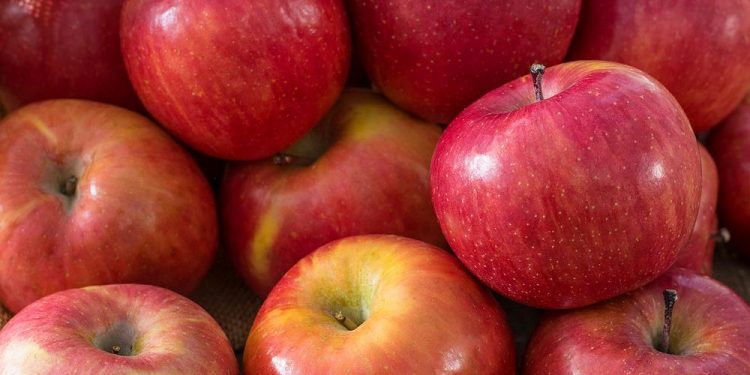When biting into a large, sweet apple from the local grocery store, it’s easy to take the characteristics of our modern fruits for granted.
We don’t often consider the long history of migration and improvement, both random and intentional, that has led to the seemingly perfect apples we enjoy today. Were the apples of our past always delicious? Where did our apples come from and how much have they changed?
The origins of the apple can be traced back to the Tian Shen mountains in modern day Kazakhstan, where the wild ancestor of apples, Malus sieversii, still grows in forests today.
The largest city in Kazakhstan, Almaty, derives its name from the Kazhak word Almatau meaning “apple mountain.”
Archeological evidence suggests that human cultivation of apples began at least 5,000 years ago.
During the last five millennia, our human ancestors transported apple seeds first across Asia via the Silk Road and eventually across the world.
But these ancient apples are quite different from the varieties we are accustomed to today. Wild apples are often small, acidic and bitter and generally not something you would pay USD 8.80/kg for.
Our research group compared today’s cultivated apples (varieties grown on farms like Honeycrisp and McIntosh) to the fruits of their wild ancestors, Malus sieversii, to quantify how apple fruits have changed over thousands of years.
Our experiment made use of Canada’s Apple Biodiversity Collection, an orchard in Nova Scotia containing over 1,000 different apple varieties from around the world, both wild and cultivated.
Growing trees from the mountains of Kazakhstan alongside cultivated varieties allowed our research team to make direct comparisons between today’s apples and the wild apples of the ancient past.
Our study revealed that cultivated apples are 3.6 times heavier and 43 per cent less acidic than their wild counterparts.
The apples we see in supermarkets today are both larger and more palatable than those that fed our ancestors.
This dramatic change in acidity, which contributes to the sourness of apples, suggests that the apples we enjoy today are much tastier than those of the past.
In addition, cultivated apples contain 68 per cent less phenolic content than wild apples. Phenolic compounds are bioactive substances in fruits that are linked to improved human health outcomes.
However, phenolic compounds also contribute to bitter taste, meaning the apples of today taste much less bitter than their ancestral counterparts.
It’s likely that, over many centuries, humans chose to grow apples with less bioactive molecules in favour of those with a less bitter taste, resulting in decreased phenolic content in cultivated apples over time.
These results give us some insight into the taste preferences of our ancestors. Humans of the past likely selected for apples that were heavier, providing more food for more people, and less acidic and phenolic, making them more palatable.
A large proportion of these dramatic changes happened as a result of our ancestors choosing which apple varieties to bring along with them as they migrated around the world.
Over hundreds of generations, our ancestors selected apples that had traits that suited their needs, effectively conducting a long-term apple improvement experiment.
In the past 200 years, apple breeding programs have been more deliberate and more sophisticated, using modern techniques and technologies to make apples better faster.
Our group combined historical records with fruit trait data from our orchard to investigate trends in fruit characteristics among commercial varieties generated from the last 200 years of breeding.
Our investigation found that more recently released commercial apple varieties have better storage capabilities, contain more soluble solids (sugars) and have less phenolic content.
Recent efforts to improve our apples have been focused on keeping fruits fresh for longer and making them taste sweeter.
With the expansion of global food markets and our growing preferences for sweeter tastes, these changes are indicative of the desires of modern society.
Wild apples represent an invaluable source of genetic diversity — material that could be used in the future to add new or improved characteristics to modern apple varieties.
Maintaining diverse crop collections, like Canada’s Apple Biodiversity Collection, will be essential for the future of food improvement, as it allows agriculturalists to push the boundaries of what is possible with our fruits.
Indeed, when comparing apples to apples, the modern day fruit you see at the grocery store has fallen quite far from the ancestral tree — and that is something to be grateful for.
By Tommy DaviesPhD student, Agriculture, Dalhousie University
The Conversation






































